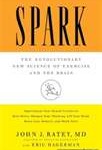Dr. Irving Kirsch, a professor at The University of Hull, has caused a stir lately with a body of research suggesting that SSRIs, the most common class of antidepressant, are no better than placebos. (Here is a 60-Minutes story about his findings.) Of course, for every SSRI skeptic there are any number of evangelists who swear by the drugs.
Personally, I’m undecided. I’ve seen SSRIs aggravate depression by muting happy emotions and adding unpleasant side-effects, while offering no measurable antidepressant effect. But I have also seen them help. In rare cases, they have been a godsend.
For anyone considering antidepressants, I would humbly suggest that the question, do antidepressants work, is the wrong question. The more relevant and pragmatic question is this: might antidepressants be helpful in my particular case?
The SSRI debate is useful in general, but it is mostly irrelevant to individual cases. It’s a bit like debating the effectiveness of transmission replacements for cars. Sometimes a new transmission fixes a car, sometimes it doesn’t. It depends on the problem.
If I found a mechanic who insisted on rebuilding every transmission (or who reflexively opposed it) I would find a new mechanic, pronto. I wouldn’t settle for one who failed to define the problem before tearing into my car. Yet that is often what is expected of patients who seek treatment for depression. Describe your symptoms – quickly! – and don’t question my treatment.
It seems to me that our central nervous systems should get at least as much respect as our cars. Of the many times that I have witnessed the failure of an antidepressant, there has been a corresponding misapplication of the drug. The correlation is difficult to ignore.
But don’t take my word for it. There is compelling research suggesting that antidepressants are routinely misused in Western countries. In a rather conservative study, Jureidini and Tonkin (2006) found that many prescriptions (one third or more, depending on the measure and the population) fell outside clinical indications, were given in excessive doses, or were prescribed for far longer than they should have been.
According to another study, only about one-third of patients experience relief after taking an antidepressant for a sufficient period of time (Cascade, Kalali, and Blier, 2007). That’s an exceptionally low number, and I suspect that has more to do with poor diagnosis than the effectiveness of the medication.
Antidepressants may be the first and best option in cases of severe depression. But in mild or moderate cases – which are the vast majority – behavioral interventions work better. Addressing the problems that lie behind depression is often more effective and longer lasting than medication (Dobson et al. 2008).
(Ironically, Jureidini and Tonkin also found that antidepressants are under-prescribed among the seriously depressed who could most benefit from them. They noted that fewer than 25 percent of US, Canadian, and European patients meeting criteria for major depression receive proper medication management.)
Antidepressants appear to be helpful in severe cases but they are probably useless and potentially harmful when they are incorrectly prescribed in less severe cases. I believe that anyone considering SSRIs should first answer these four questions, with the help of a qualified clinician:
- How severe is the depression? There are a number of depression inventories to help answer this question. If the symptoms are in the mild to moderate range, SSRIs are probably an inappropriate intervention.
- Is the depression most likely a result of circumstances or lifestyle choices that will remain unaffected by medication? If so, pills may blunt moods but they won’t fix the problem.
- Have physical problems been ruled out? Depression can be secondary to thyroid problems, low testosterone levels, nutritional deficiencies, sleep difficulties, and other physical problems. SSRIs fix none of these.
- Have healthier interventions failed? Making tough decisions about exercise, diet, sleep, alcohol use, and other lifestyle choices should be the first order of business in cases of mild to moderate depression. Physical exercise alone is as effective as any antidepressant in most cases (it is the benign cure-all that SSRIs wish they could be), and cognitive behavioral therapy is an excellent response to circumstances or lifestyle choices that contribute to depression.
SSRIs should only be taken with considerable deliberation and a solid understanding of the problem at hand. Despite their benign image, they are the furthest thing from harmless happy pills. They come with side effects, and there is evidence that they can have serious, long-term effects on the central nervous system. If SSRI’s are the right answer for you, then by all means, use them. But please take the time to properly define the problem first.
I realize that it is an investment of time and money, and I know that depression deprives a person of gung-ho initiative. It might be simpler to skip the process and take the pills, but we only get one brain each. Taking time to define the problem could prevent years of wasted effort and needless suffering.
Dr. Shawn Smith is a psychologist in Denver and the author of The User’s Guide to the Human Mind: Why Our Brains Make Us Unhappy, Anxious, and Neurotic and What We Can Do about It.












